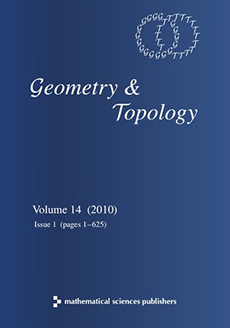Abstract
We show the problem of counting homomorphisms from the fundamental group of a homology –sphere to a finite, nonabelian simple group is almost parsimoniously –complete, when is fixed and is the computational input. In the reduction, we guarantee that every nontrivial homomorphism is a surjection. As a corollary, any nontrivial information about the number of nontrivial homomorphisms is computationally intractable assuming standard conjectures in computer science. In particular, deciding if there is a nontrivial homomorphism is –complete. Another corollary is that for any fixed integer , it is –complete to decide whether admits a connected –sheeted covering.
Given a classical reversible circuit , we construct so that evaluations of with certain initialization and finalization conditions correspond to homomorphisms . An intermediate state of likewise corresponds to homomorphism , where is a Heegaard surface of of genus . We analyze the action on these homomorphisms by the pointed mapping class group and its Torelli subgroup . Using refinements of results of Dunfield and Thurston, we show that the actions of these groups are as large as possible when is large. Our results and our construction are inspired by universality results in topological quantum computation, even though the present work is nonquantum.
One tricky step in the construction is handling an inert “zombie” symbol in the computational alphabet, which corresponds to a trivial homomorphism from the fundamental group of a subsurface of the Heegaard surface.
Citation
Greg Kuperberg. Eric Samperton. "Computational complexity and $3$–manifolds and zombies." Geom. Topol. 22 (6) 3623 - 3670, 2018. https://doi.org/10.2140/gt.2018.22.3623
Information





